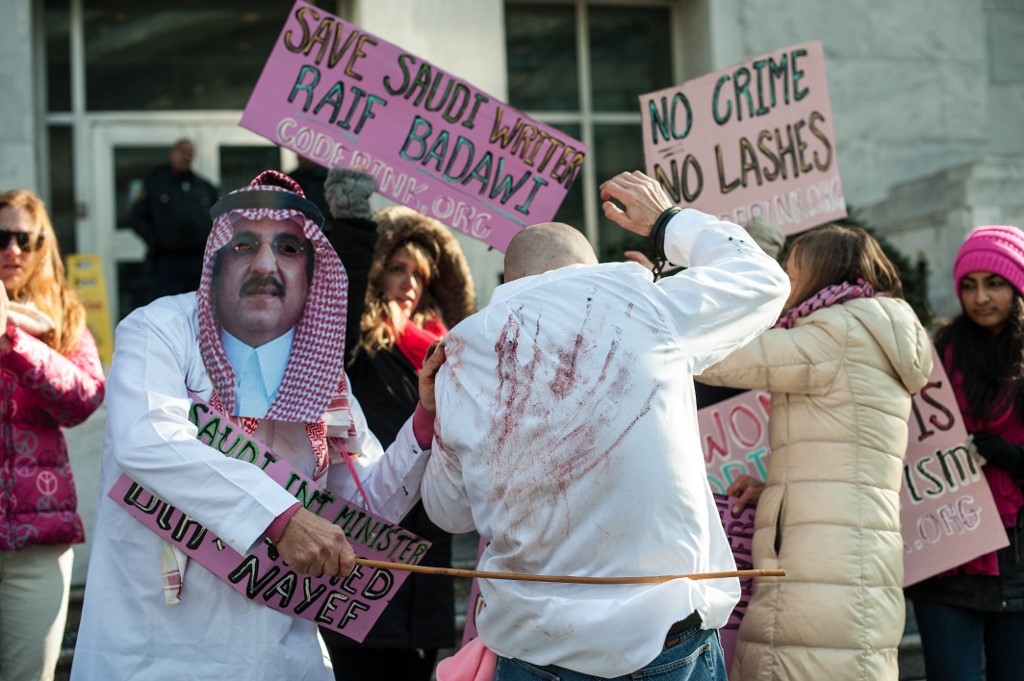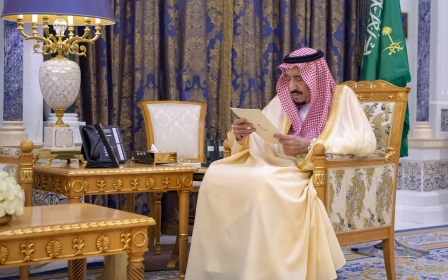Saudi Arabia courts abolish flogging as punishment

Saudi Arabia has abolished flogging as a legal punishment in response to criticism of its use of corporal punishment, the Supreme Court has announced.
Hundreds of lashes could previously be ordered for a variety of offences, including murder, extramarital sex and breach of the peace.
Despite the change attributed to reforms under Crown Prince Mohammed bin Salman, Amnesty International reported last week that Saudi Arabia executed a record 184 people in 2019, accusing the kingdom of using the death penalty notably against Shia Muslim dissidents.
The Saudi supreme court said the latest reform was intended to "bring the kingdom into line with international human rights norms against corporal punishment".
In the future, judges will have to choose between fines and/or jail sentences, or non-custodial alternatives like community service, the court said in a statement seen by AFP on Saturday.
The change has followed increased criticism of Saudi Arabia's treatment of prisoners, especially political opponents under bin Salman, after scholar Abdullah al-Hamid died in prison on Friday.
Rights group Prisoners of Conscience claimed the human rights activist died because his health was neglected after doctors recommended he be taken for heart surgery.
Hamid was a founding member of the Saudi Civil and Political Rights Association (ACPRA) and was sentenced to 11 years in jail in March 2013, campaigners said.
He was convicted on multiple charges, including "breaking allegiance" to the Saudi ruler, "inciting disorder" and seeking to disrupt state security, Amnesty International said.
The most high-profile instance of flogging in recent years was the case of Saudi blogger Raif Badawi who was sentenced to 10 years in prison and 1,000 lashes in 2014 for "insulting" Islam.
He was awarded the European parliament's Sakharov human rights prize the following year.
Earlier this month, human rights organisation Reprieve reported that Saudi Arabia had carried out the 800th execution in King Salman's five years of rule.
According to the British nonprofit, which campaigns against the death penalty, the rate of execution in Saudi Arabia has doubled since 2015, when King Salman succeeded to the throne after the death of his half-brother, King Abdullah.
Criticism of Saudi Arabia's human rights record has grown since King Salman named his son Mohammed crown prince and heir to the throne in June 2017.
The October 2018 murder of vocal critic Jamal Khashoggi inside the Saudi consulate in Istanbul and the increased repression of dissidents at home have overshadowed the prince's pledge to modernise the economy and society.
Middle East Eye delivers independent and unrivalled coverage and analysis of the Middle East, North Africa and beyond. To learn more about republishing this content and the associated fees, please fill out this form. More about MEE can be found here.




